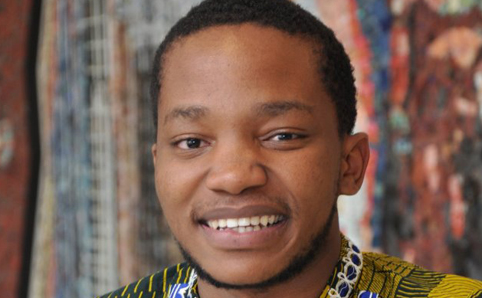 |
|
Sibusiso Tshabalala is making strides as an international young leader.
23 April 2012
|
Third-year B.Com Law student, Sibusiso Tshabalala from our university, is one of ten of Google’s Young Minds for 2012. He made it to the top thirty from a pool of 1 700 applicants at the beginning of April 2012.
“The standard of other competitors and the panel of judges were extremely high. I was excited to receive the news that I had made it,” he says.
Annually, Google searches for ten students internationally who demonstrate strong leadership capabilities. This once-in-a-lifetime opportunity is given to students who also have an entrepreneurial drive and a commitment to social activism. Sibusiso was selected for his involvement in renovating libraries and training budding public speakers. His projects also involve encouraging literacy and critical thinking in poor areas in the Free State by establishing reading clubs.
Sibusiso will be attending the Google Zeitgeist in London from 20 to 22 May 2012.
At the conference, he will have the opportunity to meet some of the world’s greatest minds. Over 400 influential business leaders and visionaries from around the world will be hosted. Speakers include Prof. Stephen Hawking, former Lucasian Professor of Mathematics: University of Cambridge; Sir Richard Branson, Virgin Group; Eric Schmidt, Chairman: Google; Larry Page, CEO: Google; Angela Ahrendts, CEO: Burberry, and international musician will.i.am.
The ten winners will also take part in a series of ‘master classes’ with the aim of mentoring them to help further their future projects.
His achievements include the 2010 winner of the National SAGE Competition (Students for the Advancement of Global Entrepreneurship). He represented South Africa in Brazil that same year and was also National Winner of the Best Speaker Award at the 2011 South African National Universities Debating Championships. He was ranked as one of the top ten debaters in Africa at the Pan African Universities Debating Championships held in Bulawayo, Zimbabwe in 2011. Sibusiso recently chaired the committee that organised the first university based CANSA Relay for Life Event in South Africa. This took place at the UFS in February 2012.